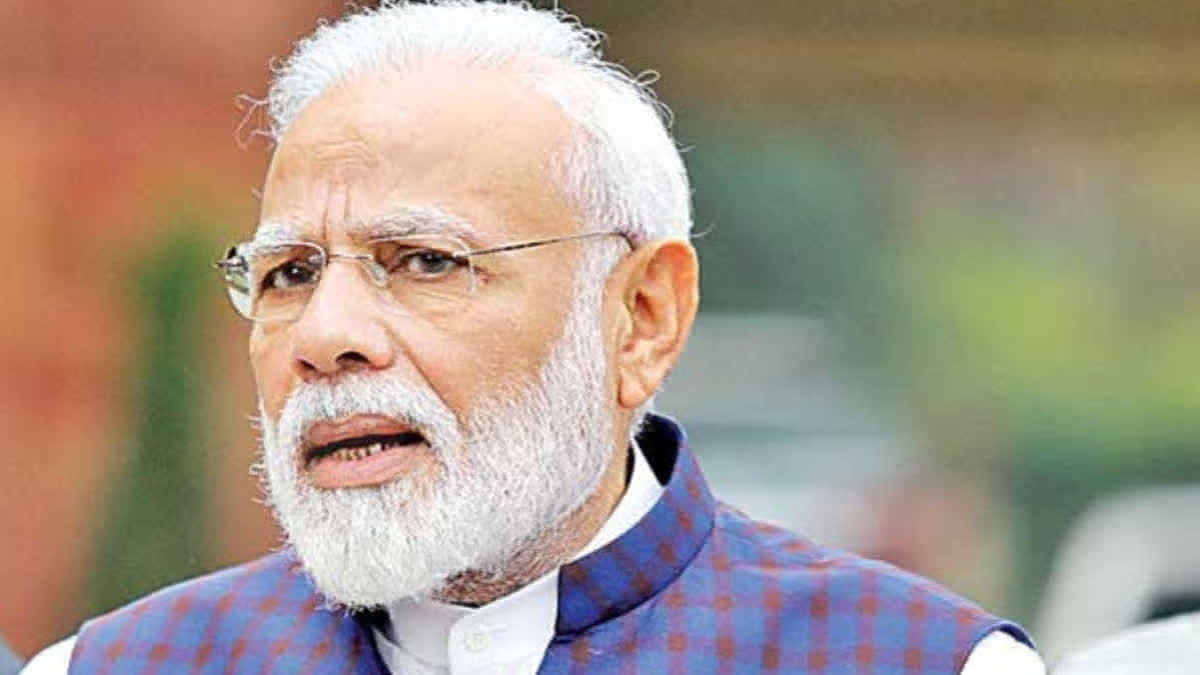New Delhi: In a poignant address on the final day of sessions at the historic Old Parliament House, Prime Minister Narendra Modi seized the opportunity to confront the opposition while reflecting on India's tumultuous political history. With a sense of nostalgia and a touch of political rhetoric, Modi delved into the annals of Indian democracy, referencing events from the dark days of the Emergency to the formation of Telangana, alluding to what he deemed as erroneous decisions by the previous UPA government, led by the Congress party.
Modi began his speech by acknowledging the Old Parliament House's significance, hailing it as a witness to both the darkest hours of Indian democracy and the unwavering resilience of its people. He underlined the dichotomy of the parliament's history, a place that had witnessed not only assaults on democracy but also the indomitable spirit of a nation's faith in democratic ideals.
Also read: A tribute to heart of democracy: PM Modi sings paens to Indian Parliament in 75 years
“This parliament saw emergency and the attack on democracy but this parliament also saw the strength of the people and belief in democracy. This country witnessed how the people of this country gathered strength to fight the emergency and rested their faith on democracy,” the Prime Minister.
Hinting at the tenure of ex-PM Chandrasekkhar who had the smallest number of members in the parliament but became the prime minister because of the support from Congress, the Prime Minister said, “This parliament saw the Prime Minister with only 64 MPs and the largest party sitting in the opposition”.
The Prime minister was referring to Chandrashekhar, who decided to break away from the Janata Dal, taking 64 MPs with him. He subsequently founded the Samajwadi Janata Party. In a surprising turn of events, Chandrashekhar assumed the role of Prime Minister with the backing of the Congress party, despite the Janata Dal's opposition. However, this government's tenure was short-lived. After a mere three months in power, the Congress party withdrew its support for Chandrashekhar's government, accusing it of espionage directed at their leader, Rajiv Gandhi. Faced with a loss of majority support, Chandrashekhar was compelled to tender his resignation on March 6, 1991.
The Prime Minister also took a dig at the UPA government in the formation of Telangana, a contentious issue that reverberated through Indian politics, Modi expressed his regret that the process hadn't transpired in a more harmonious atmosphere. He suggested that a more collaborative approach might have allowed Telangana to achieve greater heights than its current state. The formation of Telangana was marred by instances of violence and discord, as long standing animosities between Andhra Pradesh and Telangana resurfaced.
Referring to several states formed by the BJP government, the Prime Minister said, “There was lots of bloodshed and quarrel during the formation of Telangana. The seed of enmity had been woven in the hearts of the people of Andhra Pradesh and Telangana. This could have been done in an amicable way. Had it been done then Telangana would have touched a new height”.
Modi also paid tribute to former Prime Minister P.V. Narasimha Rao, highlighting the remarkable journey of a leader who retired from active politics only to return as the country's prime minister for five years. This, he said, exemplified the beauty of democracy, where even those in political retirement could play pivotal roles in the nation's leadership.
As the Old Parliament House prepared to close its doors, Modi's words served as a reminder that the institution had borne witness to the best and worst of Indian democracy. It had seen both the erosion of democratic values and the resilience of the nation's democratic spirit. In bidding adieu to this iconic structure, India turned another chapter in its political history, hoping that the lessons learned within these historic walls would guide the nation toward a more inclusive and harmonious future.



